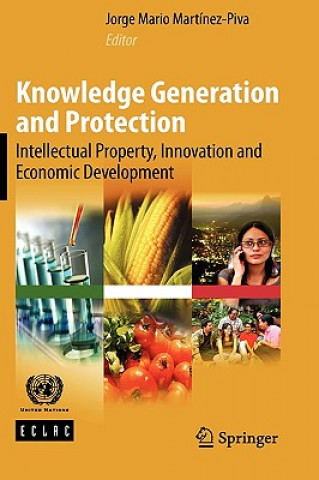
Kód: 01420604
Knowledge Generation and Protection
Autor Jorge M. Martinez-Piva
The wealth of the most developed nations, and, to a large extent their economic growth, can be explained by the capacities to generate research, create knowledge, appropriate it and transform it into new technologies. The study of ... celý popis
- Jazyk:
 Angličtina
Angličtina - Väzba: Pevná
- Počet strán: 321
Nakladateľ: Springer-Verlag New York Inc., 2009
- Viac informácií o knihe

138.31 €

Skladom u dodávateľa v malom množstve
Odosielame za 12 - 15 dní
Potrebujete viac kusov?Ak máte záujem o viac kusov, preverte, prosím, najprv dostupnosť titulu na našej zákazníckej podpore.
Pridať medzi želanie
Mohlo by sa vám tiež páčiť
-
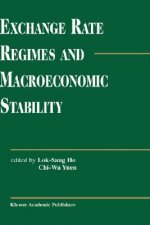
Exchange Rate Regimes and Macroeconomic Stability
138.31 € -

Fuzzy Cooperative Games
138.31 € -

Popular Music Genres
207.73 € -

Battle Zone Normandy: Operation Epsom
20.59 € -

Ukulele Chord Songbook
18.97 € -1 % -

Alice in Sussex
20.08 € -4 % -

Grundlagen Der Psychologischen Diagnostik
41.90 €
Darčekový poukaz: Radosť zaručená
- Darujte poukaz v ľubovoľnej hodnote, a my sa postaráme o zvyšok.
- Poukaz sa vzťahuje na všetky produkty v našej ponuke.
- Elektronický poukaz si vytlačíte z e-mailu a môžete ho ihneď darovať.
- Platnosť poukazu je 12 mesiacov od dátumu vystavenia.
Viac informácií o knihe Knowledge Generation and Protection
Nákupom získate 345 bodov
 Anotácia knihy
Anotácia knihy
The wealth of the most developed nations, and, to a large extent their economic growth, can be explained by the capacities to generate research, create knowledge, appropriate it and transform it into new technologies. The study of the dynamics and contemporary mechanisms for the circulation, access, and commercial application of knowledge is an urgent task, since the capabilities related to technological change appear increasingly to be the path for developing countries to move away from their condition on the periphery.§Knowledge Generation and Protection, edited by Jorge Mario Martínez-Piva, and showcasing research from academics, policymakers, and consultants, offers an analysis of three fundamental topics. The first is whether strengthening protection of intellectual property encourages or hinders technological learning and innovation in the developing countries. The second addresses the way in which knowledge is generated and how it is transformed into useful technology for the market, that is, how national innovation systems work. The third is the role of public policy as an instrument for innovation and for regulating intellectual property. Chapters explore the relationships among intellectual property, innovation, economic development, and policy in depth, with particular attention to such emerging topics as the impact of trade agreements on intellectual property rights and sensitive issues for developing countries such as access to medicines, and protection of biological diversity, living organisms, and traditional knowledge. Several chapters focus on Mexico, which serves as an important example as the only developing nation that is a member of OECD and has a rich history of industrial policy, science and technology policy, and trade openness. The concluding chapter argues that if developing countries seek to develop dynamic competitiveness based on knowledge and innovation in the present context of rigorous intellectual property regulations, they should take a leap in their science and technology policies to take advantage of the growing world market and open up long-term development paths.The wealth of the most developed nations, and, to a large extent their economic growth, can be explained by the capacities to generate research, create knowledge, appropriate it and transform it into new technologies. The study of the dynamics and contemporary mechanisms for the circulation, access, and commercial application of knowledge is an urgent task, since the capabilities related to technological change appear increasingly to be the path for developing countries to move away from their condition on the periphery.§Knowledge Generation and Protection, edited by Jorge Mario Martínez-Piva, and showcasing research from academics, policymakers, and consultants, offers an analysis of three fundamental topics. The first is whether strengthening protection of intellectual property encourages or hinders technological learning and innovation in the developing countries. The second addresses the way in which knowledge is generated and how it is transformed into useful technology for the market, that is, how national innovation systems work. The third is the role of public policy as an instrument for innovation and for regulating intellectual property. Chapters explore the relationships among intellectual property, innovation, economic development, and policy in depth, with particular attention to such emerging topics as the impact of trade agreements on intellectual property rights and sensitive issues for developing countries such as access to medicines, and protection of biological diversity, living organisms, and traditional knowledge. Several chapters focus on Mexico, which serves as an important example as the only developing nation that is a member of OECD and has a rich history of industrial policy, science and technology policy, and trade openness. The concluding chapter argues that if developing countries seek to develop dynamic competitiveness based on knowledge and innovation in the present context of rigorous intellectual property regulations, they should take a leap in their science and technology policies to take advantage of the growing world market and open up long-term development paths.
 Parametre knihy
Parametre knihy
Zaradenie knihy Knihy po anglicky Economics, finance, business & management Economics International economics
138.31 €
- Celý názov: Knowledge Generation and Protection
- Podnázov: Intellectual Property, Innovation and Economic Development. Economic Commission for Latin America and the Caribbean (ECLAC)
- Autor: Jorge M. Martinez-Piva
- Jazyk:
 Angličtina
Angličtina - Väzba: Pevná
- Počet strán: 321
- EAN: 9781441912633
- ISBN: 1441912630
- ID: 01420604
- Nakladateľ: Springer-Verlag New York Inc.
- Hmotnosť: 1450 g
- Rozmery: 235 × 155 × 21 mm
- Dátum vydania: 01. December 2009
Obľúbené z iného súdka
-

New Confessions of an Economic Hit Man
15.31 € -20 % -

Treasure Islands
11.15 € -22 % -

Merchants of Grain
21.20 € -18 % -

Great Rebalancing
17.04 € -19 % -

Natural Capitalism
19.27 € -4 % -

Turbulent and Mighty Continent - What Future for Europe?
31.55 € -

International Economics: Theory and Policy, Global Edition
90.61 € -

Has the West Lost It?
11.05 € -23 % -

Principles for Dealing with the Changing World Order
47.08 € -6 % -

Soros on Soros - Staying Ahead of the Curve
38.55 € -19 % -

The Competitive Advantage of Nations
43.12 € -6 % -

Expert Advisor Programming for Metatrader 4
34.90 € -

Concise History of International Finance
36.52 € -

Handbook of International Trade and Finance
56.21 € -

Japanese Business Culture and Practices
14.50 € -4 % -

Understanding Ludwig Lachmann's Economics
24.85 € -

Coercing, Constraining and Signalling
64.33 € -

Secrets of Temple
26.48 € -6 % -
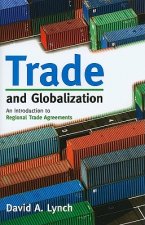
Trade and Globalization
109.19 € -

Bad Samaritans
13.18 € -23 % -

The Road to Ruin
16.43 € -23 % -

SuperHubs
11.25 € -21 % -

China Shakes The World
11.05 € -23 % -

International Economics with MyEconLab
67.88 € -

Cracking the China Conundrum
52.66 € -

Import/Export: How to Take Your Business Across Borders
30.33 € -23 % -

EuroTragedy
47.18 € -

Forex for Ambitious Beginners
23.74 € -

Age of Turbulence
18.56 € -23 % -

Is the American Century Over?
13.49 € -6 % -

Managerial Economics in a Global Economy
263.14 € -

International Trade
133.54 € -

Red Flags
30.44 € -

Fair Trade
12.47 € -13 % -

Splendid Exchange
21.81 € -23 % -

Fault Lines
15.42 € -19 % -

Transatlantic Defence Procurement
195.35 € -

International Economic Institutions
70.22 € -

Oxford Handbook on The World Trade Organization
71.23 € -

International Trade Finance
77.42 € -8 % -

No Ordinary Disruption
15.21 € -21 % -

Informal Post-Socialist Economy
66.56 € -

Economics of the European Union
112.54 € -
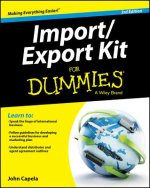
Import/Export Kit For Dummies 3e
24.55 € -21 % -

Signals
11.05 € -23 % -

Doing Business in Europe
99.75 € -
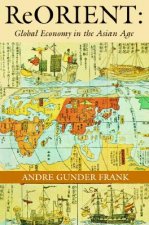
ReORIENT
42.82 € -

Making Globalization Work
12.17 € -23 % -

Medieval Trade in the Mediterranean World
51.34 €
Osobný odber Bratislava a 2642 dalších
Copyright ©2008-24 najlacnejsie-knihy.sk Všetky práva vyhradenéSúkromieCookies


 21 miliónov titulov
21 miliónov titulov Vrátenie do mesiaca
Vrátenie do mesiaca 02/210 210 99 (8-15.30h)
02/210 210 99 (8-15.30h)